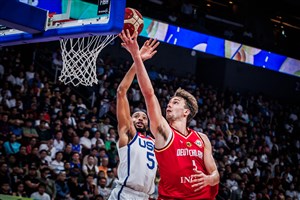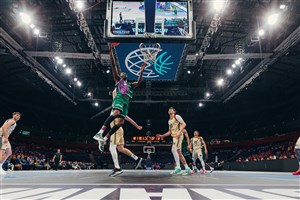
No more Silalei Shani
SHEFFIELD, (Julio Chitunda's African Message) - Kenya's women's national team suffered a major blow last week as Silalei Shani decided to retire at the age of 27.
If I'm asked whether or not Shani's decision to retire from the national team - as well as from club competition - was predicted, I would probably say yes, although it could have been avoided as she quit the game due to lack of motivation.
However, the move also raised questions about how much players and coaching staff sacrifice in order to invest in the game they love.
Kenya's aspirations on the continental stage were highly-boosted last November when Shani and her club Eagle Wings became the first local club to finish on the podium of the African Clubs Cup Women in Meknes, Morocco, where they finished third.
Eagle Wings' success seemed to be a great moment for the game in the country - and it was.
What is clear though, is that Kenya, which climbed seven places in the FIBA Ranking Women, from 73 to 66 - the biggest jump by any African team in 2013 - can't afford to lose players of the likes of Shani.
And, if I were to name the most prominent Kenyan players in recent years, I would probably pick Hilda Hindasi and Shani for their crucial roles in club and national team competitions.
While Hindasi led Kenya in scoring with 11.4 points per game, team captain Shani dominated the paint area with a team-high 7.4 rebounds per game at AfroBasket Women 2013 in Maputo, Mozambique.
In order to explain why I think that Shani's premature retirement was predictable, let me go back in time and share with you my meeting with her as well as with Kenya's head coach Ronny Owino in Maputo, where Kenya finished 10th in the 12-team championship.
It was the day after the bombings in a Nairobi mall, and the team was focusing on winning the remaining two games of the Preliminary Round Group B in order to advance to the Quarter-finals, when Shani expressed her admiration for her teammates who were competing "for the love of the game."
Shani also mentioned that they lacked incentive, which, in her view, affected the team's performance.
"On top of everything," she said at the time, "We also don't have a doctor with the team. This is not luxury it is a necessity," she insisted.
At the time, I thought their 2-5 record in the tournament could have been a lot better, had they been given what Shani said they needed, particularly after watching Kenya play their best game against the African champions Angola, in which they led the first three quarters, before falling 45-39.
Last week, the 1.86m forward told local media there was no "motivation to even wake up the following day and head to the court because of the insensitive officials who don't care about the development of the sport."
As a result of Shani's and other players' complaints, there was good news.
After their Annual General Meeting held in Nairobi over the weekend, the Kenyan Basketball Federation announced that pending allowances for players who represented the country in Maputo are to be settled by Saturday 29 March.
To me, Shani should continue shining on the basketball court, especially because of her leadership role, but for now there is no more Silalei Shani.
Julio Chitunda
FIBA
FIBA's columnists write on a wide range of topics relating to basketball that are of interest to them. The opinions they express are their own and in no way reflect those of FIBA.
FIBA takes no responsibility and gives no guarantees, warranties or representations, implied or otherwise, for the content or accuracy of the content and opinion expressed in the above article.

















